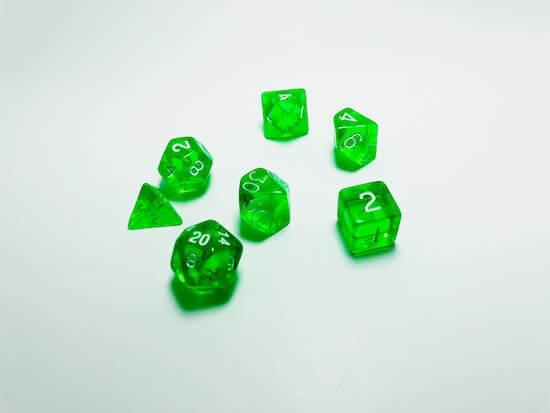Ask Teresa: How Do You Get Your First Product Job Without Experience?

Landing your first or even your second job in product can be really tricky. Many candidates encounter a Catch-22 situation: Most companies only want to hire product managers with experience, but you can’t get experience if no one will hire you. And what do we even mean by “experience,” anyway?
Even if you manage to land a job, it’s not always clear which skills you should prioritize. It’s easy to get caught up in your day-to-day work and lose sight of how to continue to grow and prepare yourself for a successful career in product.
In this edition of Ask Teresa, I tackle how to gain experience as a new product manager and which skills you should focus on building.
Find the rest of the posts in this series here. Have a topic you’d like me to address in a future post? Get in touch to let me know!
Question: As a new product manager or someone who wants to land their first product management role, which skills should you focus on developing?
Nobody wants to hire somebody without experience. That's just the hard reality of life. But the positive side of that is that we're living in a time period where anybody can get product experience. I always tell new first-time product managers or new product managers to just focus on building your repertoire of experience.
If you've never had a product job, start working on a product idea. You don't have to have engineering skills. We have great no-code tools. The key is, you have to build something, and you have to build something that creates value for people. It could be three people—that's fine. You don't have to build the next Facebook.
You could build something that your mom and two of her friends get value out of or something your roommates get value out of. Your goal is to show that you know how to identify customer problems, meet those problems, and do it iteratively. You want to be able to show that you can improve a product over time.
Wordle is a great example of this. It was created by one person who wanted to make a fun game for his partner. I’m not suggesting that everyone needs to create a wildly successful game that’s sold for seven figures. But the Wordle story shows how much one person can do on their own when they really tap into a need or desire.
We’ve never lived in a better time to be able to do this. Every single person can do something like that today because we have great tools that make it really easy to find an audience.
It’s about honing your skill to identify what people need, how you can create that for them, what you’re excited about creating, and how that aligns with people’s needs.
Even if you're in a product management job, doing something like that on the side can still be really helpful, because most companies don't do product well, so you may not be getting great experience in your first product management job.
I get asked all the time, “How do I do this if my company doesn't work this way?” Well, you can do a lot of it in your company—more than you think—even if your company doesn't work this way, but you also can start doing it on a project on the side.
The Skills That Will Help You Get Hired in a Product Role
If you’re looking to get hired in a product role, I think the key is to understand the hiring manager mindset. Hiring managers are inherently lazy. The reason why we look for people that have five years of experience is that it’s a really easy shortcut. If you’ve been doing the job for five years, you probably know how to do the job and have stories about products that you built.
Once you understand that hiring managers are essentially just looking for you to show them that you can do this job, you can look for ways to demonstrate that apart from years of experience. And that's why I think side projects are so important. It's a really easy way to show that, yes, I can do this.
As a job seeker, you might encounter some obstacles. Companies are unlikely to share their discovery work with job candidates. That’s their intellectual property and they don’t want to make it available to their competitors.
But this doesn’t prevent you from doing your own discovery work. For example, in my book and here on the Product Talk blog, I often use the example of a streaming entertainment company. Even though I don’t work for a streaming entertainment company, I can still interview people about their experience with it. I can still map out the opportunity space. I can still run through a hypothetical exercise. If I were going to build a new service in this space, this is the discovery I would base it on. These were the key things that I found.
That alone—the interviewing, opportunity mapping, assessing, and figuring out where you might start—is going to give you a huge advantage in an early interview over the vast majority of candidates.
There will be some people, particularly in startups, who are going to want to see you take it a step further. They’ll actually want to see you build something and see customers using it. You aren’t likely to build something that competes with Netflix, or any other product that’s already on the market. But you could build something that augments it. For example, you might create a recommendation spreadsheet where friends could share what they’re watching with each other. If you can build something that gets traction—even just with your friend group (based on what you learned from interviews)—that provides some evidence that you know how to do discovery.
A Nerdy Example from My Life

Around 2003 or so, I was playing tabletop Dungeons & Dragons with friends. This was when Wizards of the Coast had just open sourced all of their content and I thought that was really cool.
I played a wizard in my campaign and at that time I had all these spells that I had to remember, and I was constantly looking them up in the book. At the same time, I wanted to learn XSLT. XML was really hot at that time, so we were just trying to figure out how to process XML data. Wizards of the Coast had just released all of their content in XML format, so I created D&D 3.5 spell cards using XSLT.
I basically just processed all their data. I created these really usable spell cards. You can still find them online. This was a product I created, mostly just to scratch my own itch. But people loved it. I heard from people all the time, “Hey, these cards are great. I printed them out. I use them every time I game.”
That's a product. It's not a commercially viable product—no one's going to pay for it—but it shows that you can meet a need and you can actually ship something.
Anything is a product, and that's the beauty of it. Find something small where you can run through the full cycle and then iterate on it. That’s going to be meaningful to a hiring manager if you don’t have five years of experience.
Trying to grow as a product manager is tough when you’re doing it on your own. Why not do it along with a supportive community of like-minded peers who can cheer you on? Come join us in the CDH community.




Comments ()